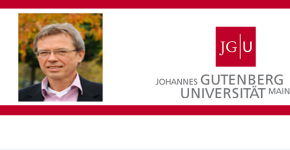Jos Lelieveld, Director of the Max Planck Institute for Chemistry and professor of Astrophysics at Mainz University, explores how we can observe this surprising development from space.
Born on July 25, 1955 in The Hague. Study of natural sciences Leiden Univ. (1984), research associate at Geosens B.V. (1984-1987), research scientist at the Max Planck Institute for Chemistry (1987-1993), PhD in Physics and Astronomy Utrecht Univ. (1990), Professor of Atmospheric Physics and Chemistry Univ. of Wageningen and Utrecht (1993-2000), Director and Scientific Member at the Max Planck Institute for Chemistry (since 2000), Professor in Atmospheric Physics, University of Mainz.
War and Air Quality

The Middle East is a region that catches much attention with upheaval and armed conflict. Environmental changes have not been in the center of attention, however, they are also remarkable. We now find that there are clear links between the two. We detect air pollution trends in the Middle East since 2005, based on observations of nitrogen dioxide and sulfur dioxide from a satellite in space.
Nitrogen oxides are important because they cause ozone pollution. Along with sulfur dioxide they also form aerosol particles. We keep track of them because they decrease air quality and influence the climate. We find that the space measurements of air pollution help monitor environmental controls; but also the impacts of economic crisis, armed conflict and the related mass migration of people.
In Greece, air pollution decreased slightly up to 2008 due to environmental controls. Since 2008 emissions have fallen drastically due to financial and economic crises. In Syria and Egypt, uprisings and political crises are associated with strongly declining air pollution since 2011. While in Syria the flows of refugees have reduced air pollution, it has rapidly increased in Jordan, and especially in Lebanon. Also in central Iraq, where the Islamic State is active, air pollution declined. In Iran, sanctions by the UN Security Council were extended sharply in 2010. Since then a strong drop in air pollution has occurred, also from tanker ships in the Persian Gulf, indicating a decline of oil export.
Our results show that international politics, economic crises and armed conflict in the Middle East can be monitored from space by measuring air pollution.


